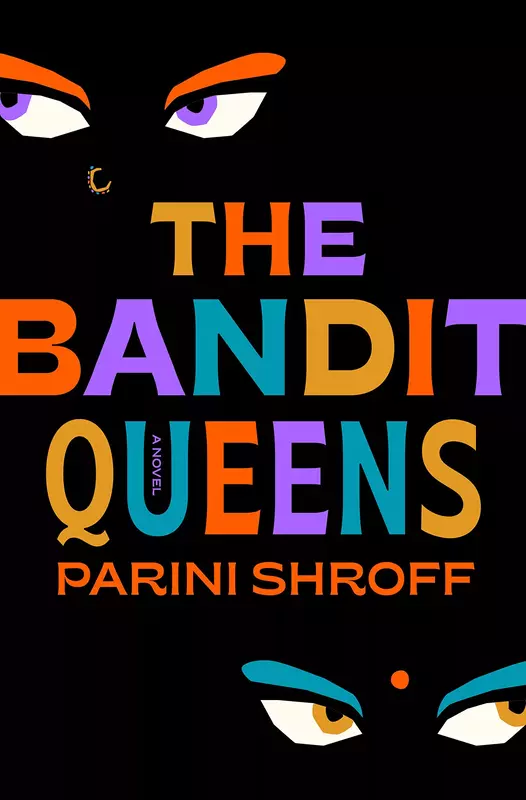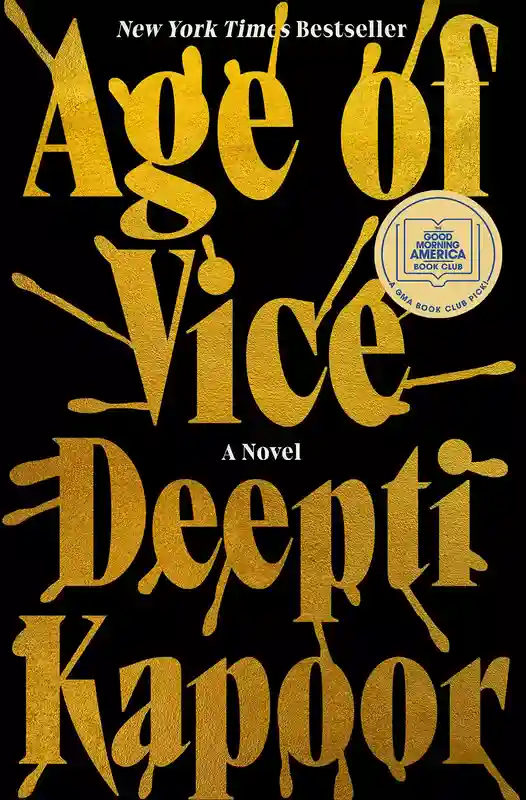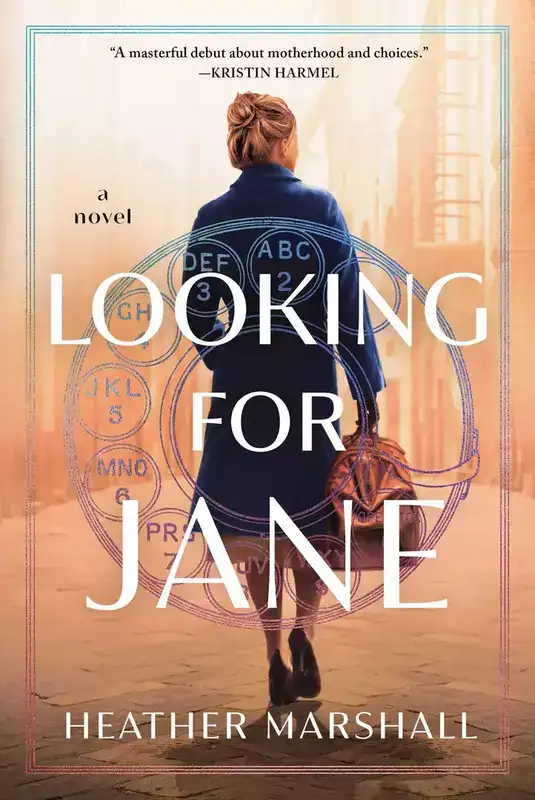This post may contain affiliate links. Read more here.
Book club questions for “River Sing Me Home” by Eleanor Shearer explore the themes of family separation, slavery, and the search for lost loved ones.
This historical novel is set in the Caribbean in the 1830s and tells the story of Rachel, a woman born into slavery on a sugar cane plantation in Barbados, who has had her five children torn away from her. As she embarks on a dangerous journey to find her lost children, she encounters a variety of characters who help or hinder her quest.
How does the historical context of slavery and the forced separation of families impact the characters in the novel? How does Rachel’s search for her children shape her identity and sense of purpose? And more…
Shearer’s writing style is evocative and powerful, capturing the complex emotions and experiences of the characters with nuance and sensitivity. As you read ‘River Sing Me Home,’ you will be drawn into the story and become invested in the characters, rooting for them as they face the challenges of their journey.
Before joining the book club discussion, be sure to read this moving and beautifully written novel that will leave you feeling inspired and enlightened. Share your own interpretations and opinions in a thought-provoking book club session, and celebrate the power of great storytelling with ‘River Sing Me Home.’
The Synopsis
Her search begins with an ending.…
The master of the Providence plantation in Barbados gathers his slaves and announces the king has decreed an end to slavery. As of the following day, the Emancipation Act of 1834 will come into effect. The cries of joy fall silent when he announces that they are no longer his slaves; they are now his apprentices. No one can leave. They must work for him for another six years. Freedom is just another name for the life they have always lived. So Rachel runs.
Away from Providence, she begins a desperate search to find her children—the five who survived birth and were sold. Are any of them still alive? Rachel has to know. The grueling, dangerous journey takes her from Barbados then, by river, deep into the forest of British Guiana and finally across the sea to Trinidad. She is driven on by the certainty that a mother cannot be truly free without knowing what has become of her children, even if the answer is more than she can bear. These are the stories of Mary Grace, Micah, Thomas Augustus, Cherry Jane and Mercy. But above all this is the story of Rachel and the extraordinary lengths to which a mother will go to find her children…and her freedom.
In love with books? Try audio books or writing classes
for free for 30 days.✨
Selected Reviews for River Sing Me Home
“A moving and dynamic novel…. Shearer treats such a difficult and underexamined part of history deftly and honourably. She sieves through it to give us what all good novelists do; the essential without sacrificing the specific and the historical.” —The Guardian (UK)
“[A] testament to how hard a mother will fight for her kids.” —Real Simple
“I followed Rachel’s journey with my heart in my mouth. Eleanor Shearer brings this story of a mother’s courage to the page with compassion, tenderness and pitch-perfect prose. A powerful debut novel from a remarkable writer.”—Natasha Lester
“A stunning debut with poetic language and real characters that lock themselves in your heart. Full of emotion and sheer determination, River Sing Me Home is a fine example of the will and strength of the Black women who fought and clawed themselves and their loved one from the evil clutches of slavery. We stand on their shoulders and this book honors them all.”—Sadeqa Johnson
“In scenes of vivid horror, stirring resilience, and moving reconciliation, Shearer shows the cruel effects of slavery and its aftermath. The beautifully written depiction of a mother longing for her children makes this transcendent.”—Publishers Weekly (starred review)
Book Club Questions for River Sing Me Home
Spoiler alert: my book club questions contain spoilers, so make sure to discuss them after you’ve finished reading.
1. In “River Sing Me Home”, the master of the Providence plantation in Barbados declares the end of slavery but announces that the slaves are now his apprentices and must work for him for another six years. How does this reveal the complicated nature of freedom and the limitations of legal declarations? In what ways do the former slaves still face bondage and oppression, and what are the consequences of their attempts to escape?
2. The novel follows Rachel’s journey to find her five children who were sold into slavery and scattered across the Caribbean. What is the significance of this journey, both literally and symbolically? How does the journey reflect Rachel’s inner turmoil and her quest for freedom and redemption, and what are the physical and emotional obstacles she faces along the way?
3. While Rachel’s children take different paths to freedom, are they all truly free? How do their choices reflect their individual desires and needs, and what does this suggest about the nature of freedom?
4. Rachel’s search for her children takes her from Barbados to British Guiana and finally to Trinidad, and she encounters a variety of people who offer her help and resistance. How do these characters contribute to the novel’s portrayal of motherhood and female resilience, and what do they reveal about the complex social and cultural dynamics of the Caribbean in the aftermath of slavery?
5. “River Sing Me Home” is based on a real woman’s story, and the author has done extensive research on the historical context of the book. How does the book balance historical accuracy with literary imagination, and what are some of the challenges and opportunities of writing historical fiction? In what ways does the book shed light on an overlooked part of history and raise important questions about race, gender, and power?
6. What might be the significance of Rachel’s relative silence on the subject of her children’s fathers? How might this relate to broader themes related to gender, power, and sexual violence in the context of slavery? Are there any clues in the text that offer insight into the identities of these fathers, and if so, what might this reveal about the nature of power dynamics in the society in which Rachel lives?
7. At its core, “River Sing Me Home” is a story of love, loss, and the enduring bond between a mother and her children. How does the book explore the complexity and ambiguity of this bond, and what are some of the ethical and emotional dilemmas that arise from Rachel’s search for her children? How does the book challenge our assumptions about motherhood and family, and what are some of the universal themes that resonate with readers across cultures and time periods?
8. What do Mary Grace’s character and her relationship with Nobody reveal about broader themes related to identity, community, and resistance in the novel? How does Mary Grace’s position as a healer, and the power that this confers, intersect with the various power dynamics that shape the lives of enslaved individuals in the Caribbean? How might her relationship with Nobody challenge or subvert these power structures?
9. “River Sing Me Home” is set in the aftermath of slavery in the Caribbean, following the Emancipation Act of 1834. How did this historical context shape the characters and their experiences throughout the novel? In what ways did the characters struggle to find their own version of freedom?
10. How did the secondary characters, such as the emancipated dressmaker and the nomadic former slave, impact Rachel’s journey and what did they add to the story?
11. The novel does not have many twists and turns, but rather takes the reader on a linear journey. Did this style of storytelling impact the way you read the book and experience the characters’ journey? In what ways did the lack of shocking surprises add to or detract from the story?
12. The novel ends on a hopeful note, but the characters still have to accept painful realities about their lives. What does this say about the idea of freedom and what it means to different people?
13. In what ways does Rachel’s attitude towards survival differ from that of other characters in the novel? How do her experiences shape her identity and her understanding of herself and the world around her? How do the various challenges that Rachel faces throughout the novel impact her outlook on life, and do you believe that her attitude towards survival changes over time?
14. The novel includes anachronistic elements, such as the character of Hope’s modern feminist attitudes. How does this impact the novel’s historical accuracy and overall message?
15. What are some of the key themes related to motherhood that emerge in the novel, and how do they intersect with Rachel’s story? In what ways do Rachel’s experiences as a mother help to shape her character, and how do they influence her relationships with her children? What do you think the novel suggests about the challenges and complexities of motherhood in the context of slavery?
16. What role do the fragmented stories of minor characters play in shaping our understanding of Rachel’s journey and the broader context of slavery in the Caribbean? How do these stories contribute to our understanding of the novel’s themes and ideas? How might these smaller narratives offer insight into the experiences of enslaved individuals whose stories might otherwise go untold?
17. In what ways do the musical elements of the novel help to develop its themes and ideas? What role does music play in the lives of the novel’s characters, and how does it contribute to their understanding of themselves and their world? What might the various songs and musical traditions explored in the novel reveal about the cultural landscape of the Caribbean during this time period?
18. How does “River Sing Me Home” explore the tension between remembering and forgetting in the context of slavery and resistance? In what ways do various characters navigate this tension, and what might their choices reveal about their individual experiences and identities? How does the natural landscape of the Caribbean, and the forces of nature that it represents, intersect with these themes of memory and history?
19. In what ways does the natural world of the Caribbean, with its diverse ecosystems and shifting landscapes, function as a character in the novel? How might Rachel’s interactions with the natural world reflect her own experiences of struggle, resistance, and survival? What do the various natural forces explored in the novel reveal about the larger historical and cultural contexts in which the story takes place?
20. The story follows a number of coincidences that help Rachel in her search for her lost children. Do these coincidences detract from the story’s credibility?
21. “River Sing Me Home” touches on issues of environmental destruction and plantation farming. How does this theme inform the story’s larger message about the legacy of slavery?
Additional Recommendations
Hope you enjoyed book club questions for River Sing Me Home! Here are some more book recommendations along with their synopses.
The Bandit Queens by Parini Shroff
Five years ago, Geeta lost her no-good husband. As in, she actually lost him—he walked out on her and she has no idea where he is. But in her remote village in India, rumor has it that Geeta killed him. And it’s a rumor that just won’t die.
It turns out that being known as a “self-made” widow comes with some perks. No one messes with her, harasses her, or tries to control (ahem, marry) her. It’s even been good for business; no one dares to not buy her jewelry.
Freedom must look good on Geeta, because now other women are asking for her“expertise,” making her an unwitting consultant for husband disposal.
And not all of them are asking nicely.
With Geeta’s dangerous reputation becoming a double-edged sword, she has to find a way to protect the life she’s built—but even the best-laid plans of would-be widows tend to go awry. What happens next sets in motion a chain of events that will change everything, not just for Geeta, but for all the women in their village.
Filled with clever criminals, second chances, and wry and witty women, Parini Shroff’s The Bandit Queens is a razor-sharp debut of humor and heart that readers won’t soon forget.
Age of Vice by Deepti Kapoor
This is the age of vice, where money, pleasure, and power are everything, and the family ties that bind can also kill.
New Delhi, 3 a.m. A speeding Mercedes jumps the curb and in the blink of an eye, five people are dead. It’s a rich man’s car, but when the dust settles there is no rich man at all, just a shell-shocked servant who cannot explain the strange series of events that led to this crime. Nor can he foresee the dark drama that is about to unfold.
Deftly shifting through time and perspective in contemporary India, Age of Vice is an epic, action-packed story propelled by the seductive wealth, startling corruption, and bloodthirsty violence of the Wadia family — loved by some, loathed by others, feared by all.
In the shadow of lavish estates, extravagant parties, predatory business deals and calculated political influence, three lives become dangerously intertwined: Ajay is the watchful servant, born into poverty, who rises through the family’s ranks. Sunny is the playboy heir who dreams of outshining his father, whatever the cost. And Neda is the curious journalist caught between morality and desire. Against a sweeping plot fueled by loss, pleasure, greed, yearning, violence and revenge, will these characters’ connections become a path to escape, or a trigger of further destruction?
Equal parts crime thriller and family saga, transporting readers from the dusty villages of Uttar Pradesh to the urban energy of New Delhi, Age of Vice is an intoxicating novel of gangsters and lovers, false friendships, forbidden romance, and the consequences of corruption.It is binge-worthy entertainment at its literary best.
Looking for Jane by Heather Marshall
2017: When Angela Creighton discovers a mysterious letter containing a life-shattering confession, she is determined to find the intended recipient. Her search takes her back to the 1970s when a group of daring women operated an illegal underground abortion network in Toronto known only by its whispered code name: Jane.
1971: As a teenager, Dr. Evelyn Taylor was sent to a home for “fallen” women where she was forced to give up her baby for adoption—a trauma she has never recovered from. Despite harrowing police raids and the constant threat of arrest, she joins the Jane Network as an abortion provider, determined to give other women the choice she never had.
1980: After discovering a shocking secret about her family, twenty-year-old Nancy Mitchell begins to question everything she has ever known. When she unexpectedly becomes pregnant, she feels like she has no one to turn to for help. Grappling with her decision, she locates “Jane” and finds a place of her own alongside Dr. Taylor within the network’s ranks, but she can never escape the lies that haunt her.
Looking for Jane is “a searing, important, beautifully written novel about the choices we all make and where they lead us—as well as a wise and timely reminder of the difficult road women had to walk not so long ago” (Kristin Harmel, New York Times bestselling author).
Thank you for reading my book club discussion questions & happy reading! ❤️


